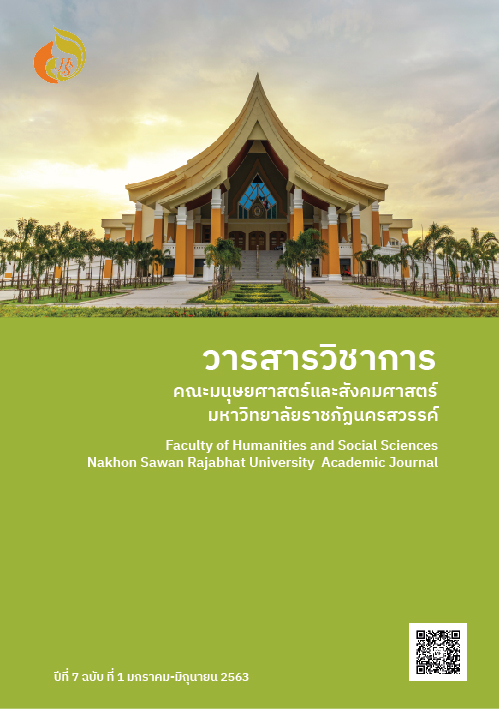Legal Problems Regarding the Rights of Deceased’s Relative in the Postmortem Examination Process
Main Article Content
Abstract
This article aims to study the concepts, theories and legal principles of investigation, postmortem examination, evidence and protection of the rights of victims in criminal cases by studying the rights of the deceased’s relatives in the postmortem examination process according to foreign law in the comparison with Thai law, in order to analyze and find solutions for the legal problems regarding the rights of relatives in the postmortem examination process.
The results show that during the body examination process, when an unnatural death occurs, the inquiry official shall inform the relatives of the deceased about the death of the deceased and postmortem examination will be conducted. If the relatives are not able to attend the postmortem examination, the inquiry official and doctor can perform the postmortem examination on their own without any inspection from the relatives, causing the relatives of the deceased to suspect the cause of death because there is no law providing other rights to relatives to relieve the suspicion. The process of autopsy, the inquiry official has the power to order the whole body or any part of the body to autopsy to doctor or the government's physician when it is necessary to find the cause of death. If they have an order that it should not be conducted, the relatives of the deceased who are still suspicious of the cause and circumstances of the death and wish to have the postmortem examination conducted cannot do anything because there is no law authorizing them to make any action on this matter. In addition, in the event of death not caused by a criminal act, the deceased’s relatives will only know the postmortem examination results when the inquiry official complete the postmortem examination and the governor orders that the case is final. If the relatives of the deceased are not satisfied with the result of the postmortem examination, they have no right to dispute to the inquiry official or the governor for the cause and circumstances of the death. Therefore, it can be seen that the law regarding the rights of the deceased’s relatives in the postmortem examination process has many problems. Therefore, it is necessary to study to find solutions and improve this issue accordingly.
The study suggests that the rights of the deceased’s relatives in the postmortem examination process should be improved and added to Criminal Procedure Code to certify and protect the rights of the relatives of the deceased, including they should have the right to appoint a doctor or their behalf to attend the postmortem examination. During the autopsy process, if the inquiry official has ordered that the autopsy should not be conducted, the relatives of the deceased have the right to request the autopsy and the postmortem examination results shall be notified to the relatives of the deceased and if the results are dissatisfied, the relatives should have the right to request the court to conduct an investigation to determine the true cause and circumstance of death so that the relatives of the deceased have more rights to the post-mortem examination, which results in greater satisfaction and it is fair to all parties in the criminal justice process.
Article Details
References
กิตติพงษ์ กิตยารักษ์ และคณะ. (ม.ป.ป.). มาตรฐานองค์การสหประชาชาติว่าด้วยกระบวนการยุติธรรมทางอาญา. กรุงเทพฯ: มูลนิธิพัฒนากระบวนการยุติธรรม.
ข่าวสนุก. (2552). ขอผ่าศพซ้ำ ญาติเดวิดพิสูจน์เอง. สืบค้น 27 มีนาคม 2562, จาก https://www.sanook.com /news/773608/.
ข่าวสนุก. (2561). ฌาปนกิจรอเก้อ ญาติไม่เผาศพสาวจมน้ำตายเพราะเชื่อเป็นฆาตกรรม. สืบค้น
มีนาคม 2562, จาก https://www.sanook.com/ news/7473154/.
ข่าวไทยพีบีเอส. (2562). พ่อคาใจ ลูกเกณฑ์ทหาร 11 เดือน เสียชีวิตในค่าย. สืบค้น 27 พฤษภาคม 2562, จาก https://news.thaipbs.or.th/content/280284?fbclid=IwAR3qY584FJcn TllJRfSJI7HLIca632yZL5b55qMRrK2v-tzlZjCVzXA6css.
เดลินิวส์. (2561). คดีน้องเมย. สืบค้น 6 มีนาคม 2562, จาก https://www.dailynews.co.th/tags/น้องเมย
ธีรวัฒน์ เอื้อพอพล. (2551). มาตรการตรวจสอบและถ่วงดุลการใช้อำนาจรัฐ :ศึกษากรณีการชันสูตรพลิกศพตามประมวลกฎหมายวิธีพิจารณาความอาญา มาตรา 150 วรรคสาม (วิทยานิพนธ์ปริญญามหาบัณฑิต). กรุงเทพฯ: มหาวิทยาลัยธรรมศาสตร์.
ปณิธาน มาลากุล ณ อยุธยา. (2552). การคุ้มครองสิทธิของผู้เสียหายกรณีพนักงานอัยการสั่งไม่ฟ้อง (วิทยานิพนธ์ปริญญามหาบัณฑิต). กรุงเทพฯ: จุฬาลงกรณ์มหาวิทยาลัย.
แสวง บุญเฉลิมวิภาส. (2555). นิติเวชศาสตร์และกฎหมายการแพทย์. กรุงเทพฯ: วิญญูชน.


